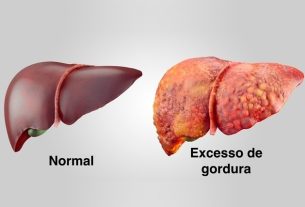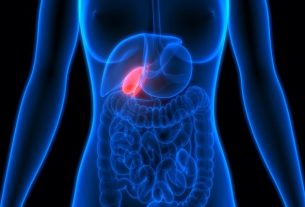Symptoms of hyperthyroidism are nervousness, irritability, weight loss, increased sweating and heart palpitations, and may arise due to increased body metabolism, which is regulated by hormones produced by the thyroid.
Hyperthyroidism is a change in the thyroid in which there is increased production of the hormones T3 and T4, most often caused by Graves’ disease, but it can also arise due to thyroid inflammation, postpartum or excessive use of levothyroxine. Check out the main causes of hyperthyroidism.
In the presence of hyperthyroidism symptoms, an endocrinologist should be consulted, so that tests can be carried out to confirm hyperthyroidism and its cause, and the most appropriate treatment can be indicated, if necessary.

Main symptoms of hyperthyroidism
The main symptoms of hyperthyroidism are:
- Weight loss for no apparent reason;
- Heart palpitations;
- Tremors in the hands;
- Heat intolerance and excessive sweating;
- Feeling of heat even in a cold environment;
- Shortness of breath when making physical efforts;
- Anxiety, nervousness or agitation;
- Difficulty sleeping and concentrating;
- Muscle weakness;
- Diarrhea or increased number of bowel movements;
- Hair loss or thin, brittle hair;
- Decreased libido;
- Irregular or absent menstruation;
- Drooping or retracted eyelids;
- Swelling of the legs, feet or hands;
- Digital clubbing;
- Thick, scaly patches of skin.
Hyperthyroidism can have different causes, however it is most often related to Graves’ disease and, in these cases, symptoms such as bulging eyes and swelling in the lower part of the throat can also be identified, for example. Learn about other causes of hyperthyroidism.
In the presence of symptoms of hyperthyroidism, especially when there is a risk factor for this disease, you should consult an endocrinologist for a thyroid evaluation, confirm hyperthyroidism and initiate the most appropriate treatment. See how hyperthyroidism is treated.
How to confirm hyperthyroidism
The diagnosis of hyperthyroidism is made by an endocrinologist through the evaluation of symptoms and the results of laboratory tests that measure the levels of thyroid hormones, such as TSH, total T3 and free T4. Find out about the tests that evaluate the thyroid.
Make an appointment with an endocrinologist in the nearest region:
In addition, the doctor may order the measurement of thyrotropin receptor antibodies (TRAb), Doppler ultrasound and, in some cases, a thyroid biopsy, to help identify the cause of hyperthyroidism.
Risk factors
Some factors increase the risk of having hyperthyroidism, such as:
- Age, being more common after age 60;
- Family history of thyroid disease;
- Personal history of thyroid problems;
- Selenium deficiency;
- Smoking habit;
- Use of medicines, such as amiodarone.
In addition, having been pregnant for less than 6 months, having pernicious anemia or atrial fibrillation problems in the heart, or consuming a lot of foods rich in iodine, can increase the risk of developing hyperthyroidism.
Find out how nutrition can help prevent and control thyroid problems by watching the following video:
Bibliography
- THYROID DEPARTMENT OF THE BRAZILIAN SOCIETY OF ENDOCRINOLOGY AND METABOLOGY. Hyperthyroidism: Symptoms. Available at: <http://www.tireoide.org.br/hipertireoidismo-sintomas/>. Accessed on April 28, 2020
- UNIVERSITY HOSPITAL – FEDERAL UNIVERSITY OF SANTA CATARINA. Hyperthyroidism/Thyrotoxicosis Protocol (in adults). Available at: <http://www.hu.ufsc.br/setores/endocrinologia/wp-content/uploads/sites/23/2015/01/PROTOCOLO-DE-HIPERTIREOIDISMO-NO-ADULTO-OK-06-de- August.pdf>. Accessed on April 28, 2020




